Health Benefits
How to submit an article:
- Registered users can submit any published journal article that has a unique DOI (Digital Object Identifier) name or link to Research Hub.
- For example, you can paste the full DOI link:
https://doi.org/10.1109/5.771073or just the DOI name:10.1109/5.771073into the field above and click submit. - The person who is first to submit a valid article to Research Hub will forever be credited for it, and every article submission earns you +6 Research Points.
Related Topics
Published research studies are articles that present the findings of original research that has undergone a peer-review process and has been made publicly available in scholarly journals, books or other media.
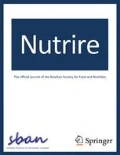
Nutritional and health-beneficial values of almond nuts consumption
2023 Nov 02 Nutrire Ouzir M
Review Article Cardiovascular Disease Cognitive Function Almond Type 2 Diabetes ObesityAlmond consumption has beneficial impacts on cardiovascular diseases, diabetes, obesity, and it can improve cognitive performance and protect against skin aging.
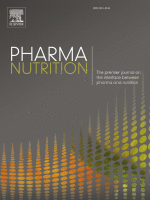
Soy protein, bioactive peptides, and isoflavones: A review of their safety and health benefits
2023 Sep PharmaNutrition Tan ST, Tan SS, Tan CX
Review Article Type 2 Diabetes Soybean Osteoporosis Isoflavone Cholesterol High Blood PressureSoy protein, bioactive peptides, and isoflavones are generally safe for consumption and may help reduce the risk of several significant health conditions.
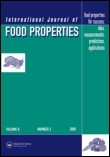
A comprehensive review on the availability of bioactive compounds, phytochemicals, and antioxidant potential of plum ( Prunus Domestica )
2023 Aug 23 International Journal of Food Properties Ayub H, Nadeem M, Mohsin M, Ambreen S, Khan F, Oranab S, et al.
Review Article Bone Health Blood Sugar Antioxidant PlumPlums, which are rich in bioactive compounds, antioxidants, and vitamins, can help maintain blood glucose level, bone health, heart health and even treat certain cancers.
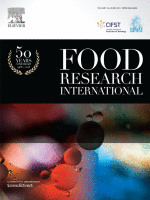
Effect of fermented soy beverage in aged female mice model
2023 Jul Food Research International Ruiz de la Bastida A, Langa S, Peirotén , Fernández-Gonzalez R, Sánchez-Jiménez A, Maroto M, et al.
Animal Study Experimental Study Soy Milk Ovarian Function MenopauseFermented soy milk significantly improves lipid profiles and fertility in a model of premenopausal mice, due to increased bioavailability and action of beneficial compounds.
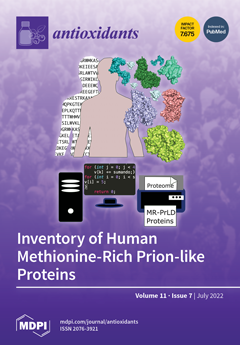
An Overview of the Health Benefits, Extraction Methods and Improving the Properties of Pomegranate
2023 Jun 27 Antioxidants Benedetti G, Zabini F, Tagliavento L, Meneguzzo F, Calderone V, Testai L
Review Article Pomegranate Cardiovascular DiseasePomegranate and its components could offer considerable potential as dietary supplements or supports in treatment for cardiovascular and non-cardiovascular diseases.
Research insights are moderated by the Research Hub team and offer an at-a-glance overview of interesting research findings.

2023 Nutrire
Almond consumption has beneficial impacts on cardiovascular diseases, diabetes, obesity, and it can improve cognitive performance and protect against skin aging.
Review Article Almond Cardiovascular Disease Cognitive Function Obesity Type 2 Diabetes
Nutritional and health-beneficial values of almond nuts consumption
Ouzir M

2023 PharmaNutrition
Soy protein, bioactive peptides, and isoflavones are generally safe for consumption and may help reduce the risk of several significant health conditions.
Review Article Cholesterol High Blood Pressure Isoflavone Osteoporosis Soybean
Soy protein, bioactive peptides, and isoflavones: A review of their safety and health benefits
Tan ST, Tan SS, Tan CX

2023 International Journal of Food Properties
Plums, which are rich in bioactive compounds, antioxidants, and vitamins, can help maintain blood glucose level, bone health, heart health and even treat certain cancers.
Review Article Antioxidant Blood Sugar Bone Health Plum
A comprehensive review on the availability of bioactive compounds, phytochemicals, and antioxidant potential of plum (
Prunus Domestica
)
Ayub H, Nadeem M, Mohsin M, Ambreen S, Khan F, Oranab S, et al.

2023 Food Research International
Fermented soy milk significantly improves lipid profiles and fertility in a model of premenopausal mice, due to increased bioavailability and action of beneficial compounds.
Animal Study Menopause Ovarian Function Soy Milk
Effect of fermented soy beverage in aged female mice model
Ruiz de la Bastida A, Langa S, Peirotén , Fernández-Gonzalez R, Sánchez-Jiménez A, Maroto M, et al.

2023 Antioxidants
Pomegranate and its components could offer considerable potential as dietary supplements or supports in treatment for cardiovascular and non-cardiovascular diseases.
Review Article Cardiovascular Disease Pomegranate
An Overview of the Health Benefits, Extraction Methods and Improving the Properties of Pomegranate
Benedetti G, Zabini F, Tagliavento L, Meneguzzo F, Calderone V, Testai L
Review Articles
Review articles summarise and critically evaluate the current state of research on a specific topic or field by synthesising multiple primary research studies.

Nutritional and health-beneficial values of almond nuts consumption
2023 Nov 02 Nutrire Ouzir M
Review Article Cardiovascular Disease Cognitive Function Almond Type 2 Diabetes ObesityAlmond consumption has beneficial impacts on cardiovascular diseases, diabetes, obesity, and it can improve cognitive performance and protect against skin aging.

Soy protein, bioactive peptides, and isoflavones: A review of their safety and health benefits
2023 Sep PharmaNutrition Tan ST, Tan SS, Tan CX
Review Article Type 2 Diabetes Soybean Osteoporosis Isoflavone Cholesterol High Blood PressureSoy protein, bioactive peptides, and isoflavones are generally safe for consumption and may help reduce the risk of several significant health conditions.

A comprehensive review on the availability of bioactive compounds, phytochemicals, and antioxidant potential of plum ( Prunus Domestica )
2023 Aug 23 International Journal of Food Properties Ayub H, Nadeem M, Mohsin M, Ambreen S, Khan F, Oranab S, et al.
Review Article Bone Health Blood Sugar Antioxidant PlumPlums, which are rich in bioactive compounds, antioxidants, and vitamins, can help maintain blood glucose level, bone health, heart health and even treat certain cancers.

An Overview of the Health Benefits, Extraction Methods and Improving the Properties of Pomegranate
2023 Jun 27 Antioxidants Benedetti G, Zabini F, Tagliavento L, Meneguzzo F, Calderone V, Testai L
Review Article Pomegranate Cardiovascular DiseasePomegranate and its components could offer considerable potential as dietary supplements or supports in treatment for cardiovascular and non-cardiovascular diseases.
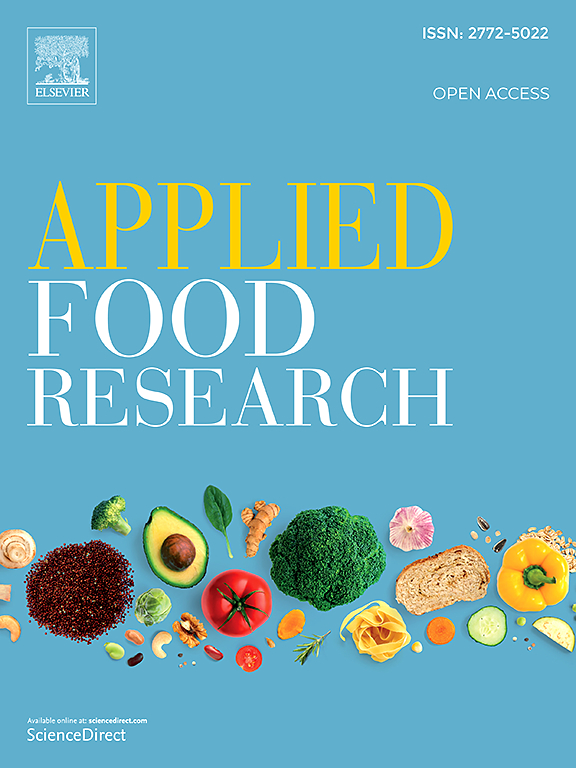
Review on edible water lilies and lotus: Future food, nutrition and their health benefits
2023 Jun Applied Food Research Abelti AL, Teka TA, Bultosa G
Water lilies and lotus have significant potential as functional and nutraceutical food ingredients, offering health benefits such as anti-inflammatory, hepato-protective, and anticancer effects, and could be commercially cultivated and processed to support the growing human population.
Theoretical Article Review Article Lotus SeedClinical Trials
Clinical trials are research studies that involve people and are conducted to evaluate the safety and efficacy of new treatments or interventions, such as drugs, medical devices, or behavioural therapies.
Study Protocols
Published study protocols are detailed plans that outline the objectives, methodology, statistical analyses, and organisation of a research study that have been made publicly available for others to review and use as a reference.
Presentation Slides

Review Article
Almond consumption has beneficial impacts on cardiovascular diseases, diabetes, obesity, and it can improve cognitive performance and protect against skin aging.
Ouzir M

Review Article
Soy protein, bioactive peptides, and isoflavones are generally safe for consumption and may help reduce the risk of several significant health conditions.
Tan ST, Tan SS, Tan CX

Review Article
Plums, which are rich in bioactive compounds, antioxidants, and vitamins, can help maintain blood glucose level, bone health, heart health and even treat certain cancers.
Ayub H, Nadeem M, Mohsin M, Ambreen S, Khan F, Oranab S, Rahim M, Zubair khalid M, Zongo E, Zarlasht M, Ullah S

Animal Study
Fermented soy milk significantly improves lipid profiles and fertility in a model of premenopausal mice, due to increased bioavailability and action of beneficial compounds.
Ruiz de la Bastida A, Langa S, Peirotén , Fernández-Gonzalez R, Sánchez-Jiménez A, Maroto M, Antonio Curiel J, Guillamon E, Arqués JL, Gutiérrez-Adán A, Landete JM

Review Article
Pomegranate and its components could offer considerable potential as dietary supplements or supports in treatment for cardiovascular and non-cardiovascular diseases.
Benedetti G, Zabini F, Tagliavento L, Meneguzzo F, Calderone V, Testai L

Review Article
Sardines, being an affordable source of Omega-3 and other cardioprotective nutrients, can potentially reduce the need for Omega-3 supplementation and manage cardiometabolic diseases.
Santos HO, May TL, Bueno AA
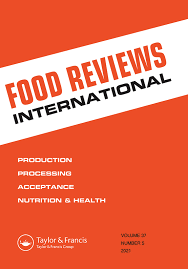
Review Article
Australian native plums contain phytochemicals that exhibit health benefits such as cardiovascular and liver protection.
Li J, Liu H, Mazhar MS, Quddus S, Agar OT, Suleria HAR

Review Article
Honey exhibits multifaceted benefits for brain health, acting as a memory booster, neuroprotective agent, anti-stress, and anti-nociceptive substance, fostering potential therapeutic applications to enhance overall cognitive well-being.
Zamri NA, Ghani N, Ismail CAN, Zakaria R, Shafin N

Review Article
Through innovative refinement, nanocurcumin, evolved from turmeric's primary component curcumin, has improved characteristics and pharmaceutical potential, particularly in drug delivery systems.
Jyotirmayee B, Nayak SS, Mohapatra N, Sahoo S, Mishra M, Mahalik G

Review Article
Adzuki beans' high lysine content, antioxidative, antibacterial, and anti-inflammatory properties highlight their dual-use as a nutritious food source and a therapeutic agent for various diseases.
Wang Y, Yao X, Shen H, Zhao R, Li Z, Shen X, Wang F, Chen K, Zhou Y, Li B, Zheng X, Lu S
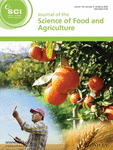
Review Article
Moderate consumption of beer, due to its melatonin content, can beneficially contribute to healthy diets and improve quality of life in certain physiological conditions.
Maldonado MD, Romero‐Aibar J, Calvo JR

Review Article
Pumpkin seed oil, with its phytochemical content, shows beneficial properties against cardiovascular problems in menopausal women and hormone imbalances.
Šamec D, Loizzo MR, Gortzi O, Çankaya T, Tundis R, Suntar , Shirooie S, Zengin G, Devkota HP, Reboredo‐Rodríguez P, Hassan STS, Manayi A, Kashani HRK, Nabavi SM

Review Article
Bee pollen, enriched with multiple nutrients, serves as a protective shield against a variety of ailments such as diabetes, allergies, and cancers, and potentially useful in cosmetic applications.
Algethami JS, El-Wahed AAA, Elashal MH, Ahmed HR, Elshafiey EH, Omar EM, Naggar YA, Algethami AF, Shou Q, Alsharif SM, Xu B, Shehata AA, Guo Z, Khalifa SAM, Wang K, El-Seedi HR
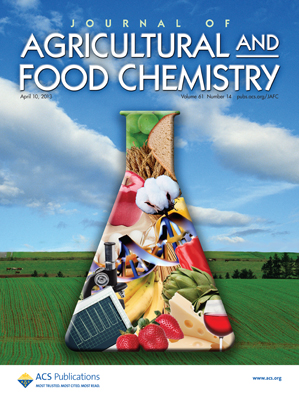
Review Article
Jujube nutrients may offer potential therapeutic benefits including antioxidant, antibacterial, anti-inflammatory functions, and improving sleep quality and learning.
Hua Y, Xu X, Guo S, Xie H, Yan H, Ma X, Niu Y, Duan JA

Review Article
Cherries and blueberries, rich in phenolic compounds, can be effectively used in pharmaceutical products, smart foods, functional beverages, and nutraceuticals to prevent or treat diseases.
Gonçalves AC, Nunes AR, Flores-Félix JD, Alves G, Silva LR

Review Article
Apple juice consumed in moderation has been found to positively impact markers of cardiovascular health, potentially influencing risk of cancer and neurodegenerative diseases.
Vallée Marcotte B, Verheyde M, Pomerleau S, Doyen A, Couillard C
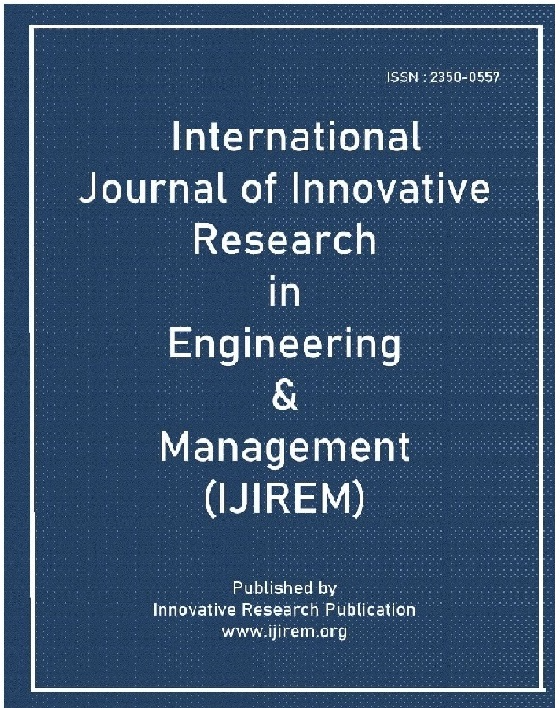
Review Article
Carrots, rich in carotenoids, flavonoids, and vitamins, have numerous health benefits including antioxidants, immune enhancement, and anti-cancer properties.
Varshney K, Mishra K

Review Article
Coconut water possesses unique compound profiles that imbue it with a broad spectrum of medical properties, incorporating aspects of nutrition, pharmacology, and disease prevention.
Rethinam P, Krishnakumar V

Review Article
Cocoa, including its often discarded shell, has promising potential in providing benefits to human health due to its high content of health-boosting phytochemicals.
Cinar Z, Atanassova M, Tumer TB, Caruso G, Antika G, Sharma S, Sharifi-Rad J, Pezzani R

Review Article
Coffee consumption may contribute to the prevention of several inflammatory diseases and types of cancer, with reduced mortality risk deemed safe up to 400mg of caffeine per day.
Barrea L, Pugliese G, Frias-Toral E, El Ghoch M, Castellucci B, Chapela SP, Carignano MA, Laudisio D, Savastano S, Colao A, Muscogiuri G
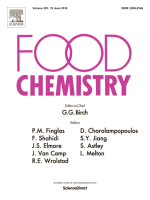
Review Article
Pu-erh tea, with its complex components, interacts greatly with gut microbiomes and holds significant potential for healthcare applications.
Liu JY, He D, Xing YF, Zeng W, Ren K, Zhang C, Lu Y, Yang S, Ou SJ, Wang Y, Xing XH

Review Article
Curcumin, derived from turmeric, exhibits an extensive range of biological and medicinal properties, including anti-inflammatory, antioxidant, and antifungal qualities.
Abd El‐Hack ME, El‐Saadony MT, Swelum AA, Arif M, Abo Ghanima MM, Shukry M, Noreldin A, Taha AE, El‐Tarabily KA
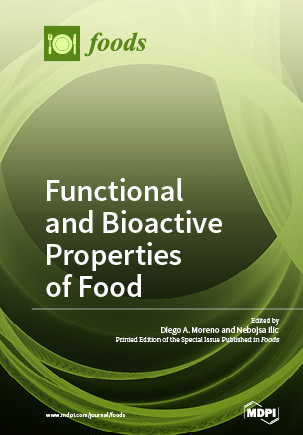
Review Article
Fermented soybean products alleviate and possibly prevent neurodegenerative conditions, including Parkinson's and Alzheimer's diseases.
Jang CH, Oh J, Lim JS, Kim HJ, Kim JS
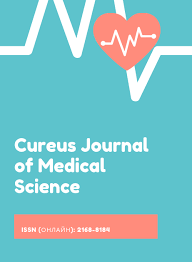
Systematic Review
A systematic analysis indicates that ginger has a higher safety profile than NSAIDs for pain relief, with a smaller number of gastric side effects and fewer kidney risks.
Negi R, Sharma DS, Gaur DR, Bahadur A, Jelly P

Systematic Review
Based on beneficial effects and minimal side effects, ginger may be a potential adjunct treatment for primary dysmenorrhea.
Negi R, Sharma DS, Gaur DR, Bahadur A, Jelly P

Review Article
Green tea, coffee, wine, and curry have beneficial health effects due to the polyphenols they contain, which possess both antioxidant and pro-oxidant properties.
Ohishi T, Fukutomi R, Shoji Y, Goto S, Isemura M
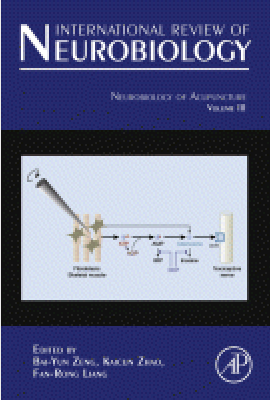
Review Article
Goji berries have significant potential as a natural medicine in anticancer efforts due to their high content of active compounds.
Anna Wawruszaka,Marta Halasaa,Karolina Oklab

Experimental Study
Pomegranate seed oil, rich in conjugated linolenic acid, potentially acts as a cytotoxic agent on tissue tumor cells, reducing polycystic ovary syndrome manifestations.
Bahmani M, Shokri S, Akhtar ZN, Abbaszadeh S, Manouchehri A
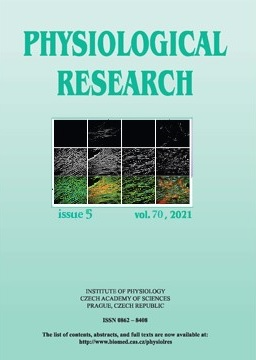
Review Article
Tea and coffee possess health promoting properties and can effectively prevent and treat metabolic disorders, including obesity, through the suppression of fat storage.
Sirotkin AV, Kolesarova A

Review Article
Shaded gardening of Japanese matcha creates high-quality tea with unique compounds that can boost physical and mental health.
Kochman J, Jakubczyk K, Antoniewicz J, Mruk H, Janda K

Review Article
Jujube fruits contain a high amount of various bioactive compounds exerting antioxidant, anti-inflammatory, antiobesity, anti-cardiovascular disease, hepatoprotective, antidiabetic, anti-microbial, anticancer, and gastrointestinal-protective effects.
Rashwan, A. K, Karim, N., Shishir, M. Rezaul Islam, Bao, T., Lu, Y., & Chen, W.

Review Article
Flavonoids from jujube have been found to stimulate the expression of erythropoietin (EPO), a hormone stimulating blood production.
Chen J, Tsim KWK

Review Article
Recent studies have indicated that jujube possesses a wide range of pharmacological activities in nervous system, cardiovascular system, as well as anti-oxidation and anti-cancer properties.
Chen J, Tsim KWK

Review Article
Pumpkin seeds carry bioactive compounds with antidiabetic, antidepressant, antioxidant, antitumor, and cytoprotective activities, also aiding in microbiological infections and specific organ disorders.
Dotto JM, Chacha JS
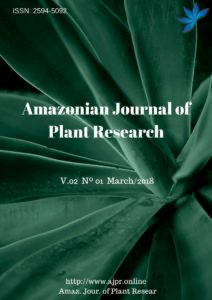
Systematic Review
The most important tremella mushroom benefits are anti-aging, anti-inflammatory, lower cholesterol, combat obesity, protect nerves and may fight cancer.
Mohamad Hesam Shahrajabian, Wenli Sun, Hong Shen and Qi Cheng
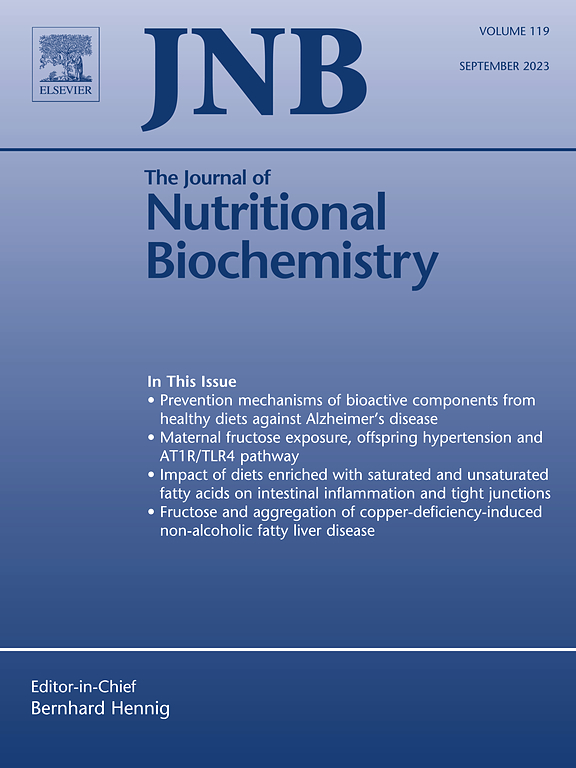
Review Article
Honey, with its variable composition based on botanical origin, exhibits antioxidant and anti-inflammatory properties, suggesting its potential efficacy in managing obesity-related dysfunctions, including neurodegeneration, through improved glycemic control and lipid profile.
Terzo S, Mulè F, Amato A

Cocoa polyphenols promote gut health by favorably altering gut microbiota composition and producing secondary bioactive metabolites with antioxidant and anti-inflammatory properties.
Sorrenti V, Ali S, Mancin L, Davinelli S, Paoli A, Scapagnini G

Review Article
Incorporating avocados into the Mediterranean diet may enhance its benefits, offering greater health flexibility and adaptability for non-Mediterranean residents.
Ford NA, Liu AG
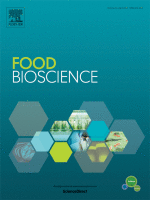
Review Article
Different varieties of dates pose impressive nutritional profiles and exhibit multiple health benefits, including anti-cancer, anti-inflammatory, and cholesterol lowering potential.
Hussain MI, Farooq M, Syed QA

Review Article
The date fruit contains compounds such as flavonoids that can protect tissues from harm and reduce risks of illnesses like cardiovascular disease and cancer.
Bentrad N, Hamida-Ferhat A
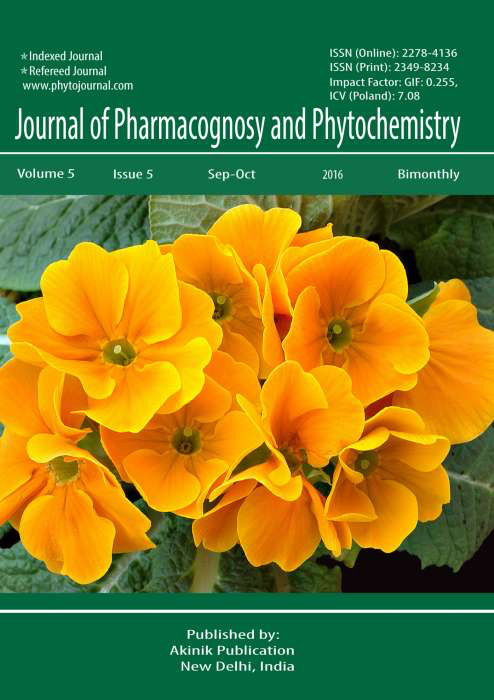
Review Article
Peppermint's extensive applications, especially its antimicrobial and antioxidant features, and potential health benefits can significantly increase its market value in various industries.
Parv Nayak, Tankesh Kumar, AK Gupta and NU Joshi
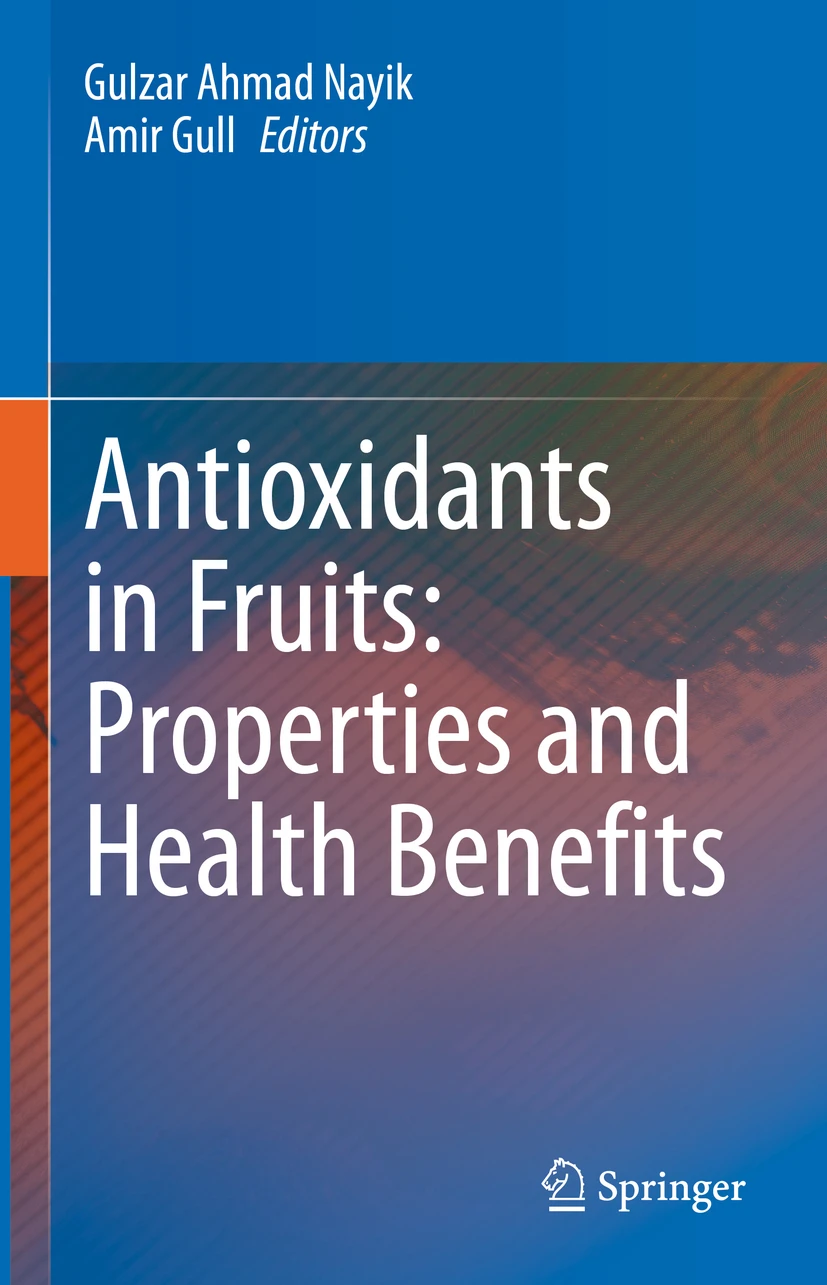
Review Article
Avocado, particularly the Hass variety, has substantial health benefits due to its rich contents of nutrients, fiber, and bioactive constituents including antioxidants.
Majid D, Dar BN, Parveen S, Jabeen A, Allai FM, Sofi SA, Ganaie TA

Review Article
Avocado's nutritional and therapeutic properties show potential for novel drug discovery in prevention and treatment of prevalent diseases such as cancer, diabetes, and cardiovascular issues.
Bhuyan , Alsherbiny , Perera , Low , Basu , Devi , Barooah , Li , Papoutsis

Review Article
Honey can protect the bone via its antioxidant and anti-inflammatory properties, primarily through its polyphenol content that acts upon several signalling pathways, leading to bone anabolic and antiresorptive effects.
Kamaruzzaman MA, Chin KY, Mohd Ramli ES

Review Article
Cocoa and cocoa products, enriched with polyphenols, have potential health benefits including enhanced vascular function, cancer prevention, and improvement in learning and memory.
E S, Panjikkaran ST, L SC, R RP

Review Article
Chrysanthemum, rich in unique chemical compounds, offers significant health benefits such as stress relief, cardio protection, immunity boost, improved eye health, and osteoporosis risk reduction.
SHAHRAJABIAN, M. H., SUN, W., ZANDI, P., CHENG, Q.

Systematic Review
The mung bean has been documented to ameliorate hyperglycemia, hyperlipemia, and hypertension, and prevent cancer and melanogenesis, as well as possess hepatoprotective and immunomodulatory activities.
Hou, D., Yousaf, L., Xue, Y., Hu, J., Wu, J., Hu, X., Feng, N., & Shen, Q. (2019).

Systematic Review
Consumption of virgin avocado oil, rich in monounsaturated fatty acids and bioactive components, may help manage chronic diseases like hypertension, diabetes, and lower cardiometabolic risk.
Tan CX

Theoretical Article
Chrysanthemum, a plant primarily grown in China and Japan, offers significant health benefits including stress reduction, cardiovascular improvement, and lowering osteoporosis risk.
SHAHRAJABIAN MH

Systematic Review
Chili pepper has preventive and therapeutic properties for many ailments such as different types of cancer, rheumatism, stiff joints, bronchitis and chest colds with cough and headache, arthritis, heart arrhythmias and used as stomachic.
Saleh BK, Omer A, Teweldemedhin B.

Review Article
Pumpkin seed oil appears effective for improving men's health conditions such as enlarged prostate, overactive bladder, and hair loss due to its anti-inflammatory properties and radical scavenging.
Ramak P, Mahboubi M
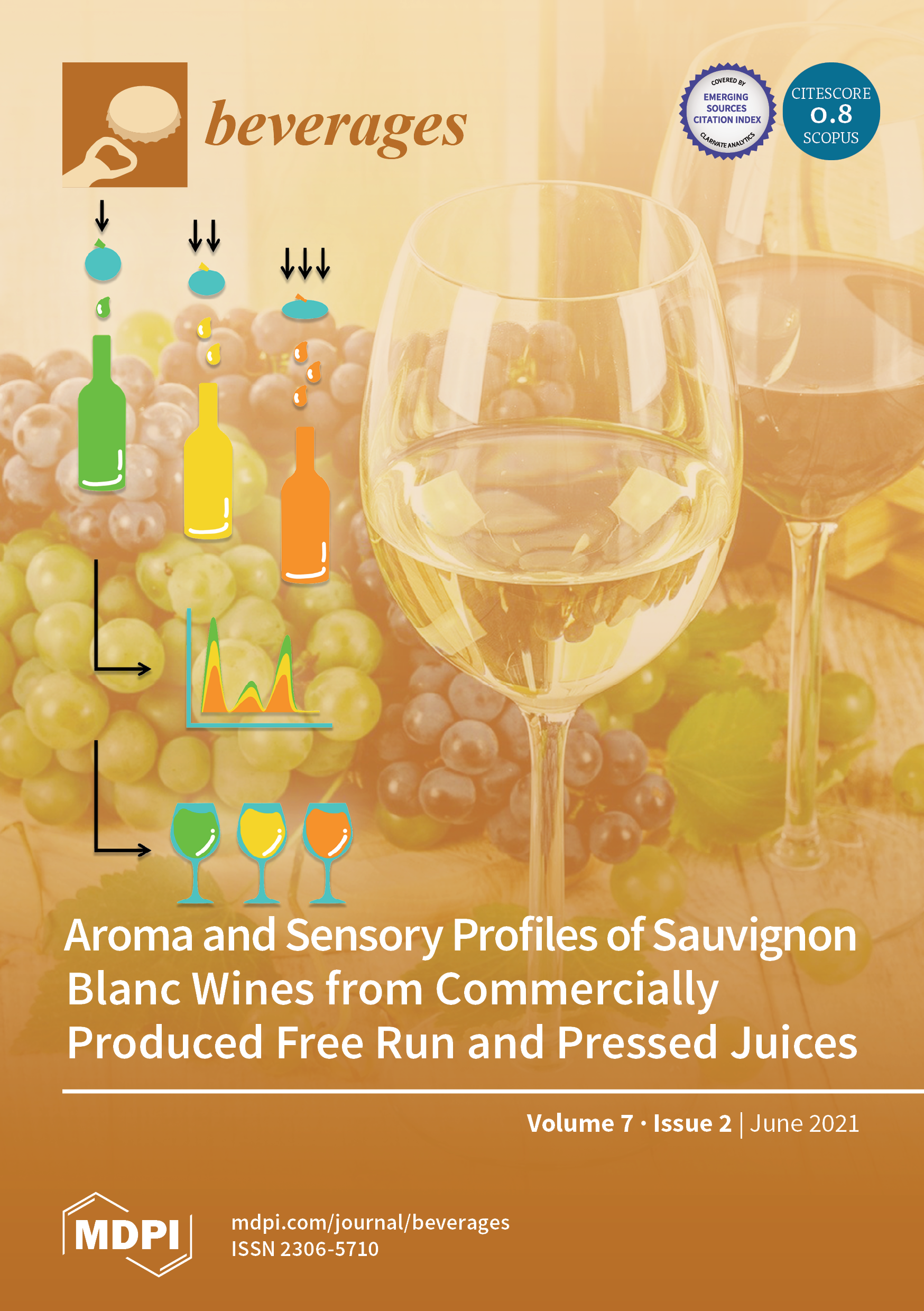
Systematic Review
Among the health benefits of green tea are: anticarcinogenic, anti-inflammatory, antimicrobial, and antioxidant properties, and benefits in cardiovascular disease and oral health.
Wanda C. Reygaert
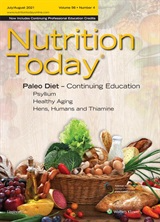
Review Article
Fenugreek can be beneficial as an adjunct in controlling high blood glucose and lipid levels in people with diabetes.
Singletary, Keith W.
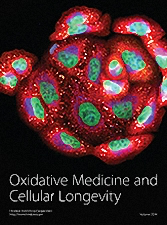
Review Article
Honeybee products like honey, propolis, and royal jelly have demonstrated potential benefits in treating metabolic diseases, cancers, and other illness types.
Pasupuleti VR, Sammugam L, Ramesh N, Gan SH
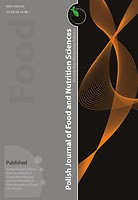
Review Article
Goji berries, classified as superfruits, possess potential beneficial implications in the dietary prevention of diseases like diabetes, cardiovascular diseases, and cancer.
Kulczyński B, Gramza-Michałowska A

Systematic Review
The alleged benefits of raw milk, including improved nutrition, prevention of lactose intolerance, or provision of "good" bacteria, lack scientific basis and are considered myths.
Lucey JA
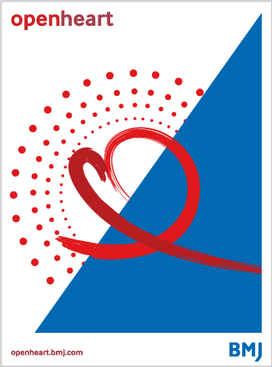
Systematic Review
Clinically, ingestion of capsaicin-or its less stable non-pungent analogue capsiate-has been shown to boost metabolic rate modestly.
McCarty MF, DiNicolantonio JJ, O'Keefe JH

Review Article
Recent phytochemical studies of jujube fruits have shed some light on their biological effects, such as the anticancer, anti-inflammatory, antiobesity, immunostimulating, antioxidant, hepatoprotective, and gastrointestinal protective activities and inhibition of foam cell formation in macrophages.
Gao QH, Wu CS, Wang M.
Executive Summary
Write an executive summary in the form of a blog article on the topic of "Research into Chinese medicine treatment for Health Benefits" summarising the research below and using language that can be easily understood by patients and avoiding medical jargon using a professional and caring tone of voice.
Write an executive summary in the form of a blog article on the topic of "Researched Chinese medicine treatments for Health Benefits" summarising the research below in an objective and easy to understand way, and using language that can be easily understood by patients. Group the article into Chinese medicine treatments first, followed by nutrition and other treatments. Avoid using medical jargon and use a professional and caring tone of voice.
Write me a concise but easy to understand executive summary on the topic of "Chinese medicine treatments for Health Benefits" based on the following research that I will give you. Your summary should be 2 paragraphs long in Australian English spelling and include references to the studies.
A Review Article published in 2023 in the journal Nutrire found that Almond consumption has beneficial impacts on cardiovascular diseases, diabetes, obesity, and it can improve cognitive performance and protect against skin aging. The methodology employed in this study included analyzing a range of clinical studies centered on the health benefits linked to the consumption of sweet almond nuts. Various health outcomes correlated with almond consumption were investigated such as body weight, food intake, blood pressure, blood lipid composition, glucose and insulin levels, oxidative status, liver enzymes, and some inflammation biomarkers. The discussion of the results reveals that almond consumption has been found to create favorable alteration in aspects like body weight, food intake, blood pressure, blood lipid composition, glucose, and insulin levels, as well as oxidative status, liver enzymes, and inflammation biomarkers. These findings highlight the beneficial impact of almonds on multiple health issues including cardiovascular diseases, diabetes, and obesity. Additionally, the consumption of almonds has been associated with improved cognitive performance and protection against skin photodamage and aging.
A Review Article published in 2023 in the journal PharmaNutrition found that Soy protein, bioactive peptides, and isoflavones are generally safe for consumption and may help reduce the risk of several significant health conditions. Methodology: This review followed the Preferred Reporting Items for Systematic reviews and Meta-Analyses guidelines. It began with a sophisticated multi-database search, featuring resources like Google Scholar, Scopus, and others. This search targeted articles published from 2017 to March 2023 and used specific keywords for accuracy. Forty-three articles were handpicked from this process after excluding reviews, conference reports, duplicates, inaccessible texts, and any non-English publications. Discussion of Results: A thorough examination of the chosen articles resulted in the conclusion that soy proteins, soy bioactive peptides, and soy isoflavones are typically safe for human consumption. Furthermore, it was found that the consumption of these compounds may have beneficial effects, potentially lowering risk factors for ailments such as osteoporosis, various cancers, hypertension, atherosclerosis, and more.
A Review Article published in 2023 in the journal International Journal of Food Properties found that Plums, which are rich in bioactive compounds, antioxidants, and vitamins, can help maintain blood glucose level, bone health, heart health and even treat certain cancers. The research explored the health benefits and medicinal effects of plums, a common fruit belonging to the Prunus genus. The study focused not only on their consumption as a food source but also their uses in beverages. Special attention was given to the polyphenolic compounds, bioactive compounds, and antioxidants inherent in plums, such as phenolic acids, anthocyanins, carotenoids, and various organic acids, alongside an array of necessary minerals and vitamins. Apart from detailing traditional nutritional components, the study analyzed the unique constituents of plums like caffeic acid, chlorogenic acid and other phenolic compounds which contribute to its antioxidant property. The broader health benefits provided by these compounds spanning bone health, cardiovascular health, blood glucose stabilization, and potential impacts on gastrointestinal diseases were studied, with a particular emphasis on their possible role in the prevention and treatment of heart disease and specific kinds of cancer: lung and oral. The role of plums' low fat and high dietary fibre content in heart disease prevention was of special focus.
A Animal Study published in 2023 in the journal Food Research International found that Fermented soy milk significantly improves lipid profiles and fertility in a model of premenopausal mice, due to increased bioavailability and action of beneficial compounds. In this study, non-fermented soy beverage (SB) and soy beverage fermented with Bifidobacterium pseudocatenulatum INIA P815 (FSB) were tested on both cyclic and acyclic C57BL/6J aged female mice which mimic premenopause and menopause conditions respectively. Over a period of 36 days, the beverages were given to the mice and the variables measured included body weight, lipid and inflammatory profile and fertility. In addition, hepatic gene expressions were examined and the faecal microbiota composition was assessed to further understand the effects of the two beverages. In the results, FSB displayed a higher concentration of the aglycones daidzein and genistein as well as increased antioxidant activity due to the fermentation process. The cyclic mice that were given FSB experienced a significant rise in the number of oocytes and zygotes retrieved. It was also noticed that the triglycerides were lower in the groups that were given FSB compared to the SB groups. However, it was found that neither of the treatments significantly influenced the inflammatory profile or caused a major shift in intestinal microbiota or hepatic gene expressions in either of the groups. Still, it was observed that FSB had more health benefits than SB with regards to the lipid profile and fertility in the cyclic mice, likely due to the increased bioavailability and bioactivity of compounds due to fermentation.
A Review Article published in 2023 in the journal Antioxidants found that Pomegranate and its components could offer considerable potential as dietary supplements or supports in treatment for cardiovascular and non-cardiovascular diseases. The review examines a myriad of recent preclinical and clinical studies focusing on pomegranate. To harness the health benefits of pomegranate, different components were extracted and studied. These include juice from the fruit's edible arils, oil from the seeds, and bioactive products from the typically discarded peel. The research also considers advances in encapsulation and green extraction techniques to optimize the use of waste pomegranate products. The studies suggest promising beneficial effects of pomegranate in diverse areas. Though challenges remain, such as limited oral bioavailability and uncertainty concerning the role of active metabolites, the collective findings offer crucial insight into the significant potential of pomegranate as a dietary supplement or co-therapy for a range of diseases, especially cardiovascular and non-cardiovascular ones.
A Review Article published in 2023 in the journal Frontiers in Nutrition found that Sardines, being an affordable source of Omega-3 and other cardioprotective nutrients, can potentially reduce the need for Omega-3 supplementation and manage cardiometabolic diseases. The abstract primarily acknowledges the importance of Omega-3 polyunsaturated fatty acids with respect to managing diseases related to heart health and metabolism, for instance, type 2 diabetes, hypertension, hypertriglyceridaemia, and fatty liver disease. However, these fatty acids are not the sole beneficial component of sardines. Minerals including but not limited to calcium, potassium, and magnesium as well as substances like taurine and arginine found in sardines have a significant role in controlling mild inflammation and oxidative stress which are usually present in cardiovascular diseases and hemodynamic dysfunction. The results discussed in the abstract suggest a positive correlation between consumption of sardines and potential cardiometabolic benefits. By considering the dose-response relationship effects, a pragmatic approach towards consumption of nutrients was suggested. The intake of sardines was seen not only as a means of Omega-3 supplementation but also as a comprehensive approach to enhancing cardiovascular health. The abstract concludes with an emphasis on the many beneficial nutrients found in sardines besides Omega-3, underlining the need to shift the focus from synthetic supplementation to natural dietary improvement.
A Review Article published in 2023 in the journal Food Reviews International found that Australian native plums contain phytochemicals that exhibit health benefits such as cardiovascular and liver protection. The research review examined five varieties of Australian native plums: Terminalia ferdinandiana (Kakadu Plum), Davidsonia jerseyana (Davidsons Plum), Podocarpus elatus (Illawarra Plum), Pleiogynium timorense (Burdekin Plum) and Parinari nonda (Nonda Plum). The paper explored each plum variety in terms of their ideal growing conditions, their phytochemical composition, their sensory properties, and their potential applications. Extracts from different parts of the fruit including the peel, pulp, and seeds were analyzed for their capabilities to interact with cell signaling pathways, scavenge free radicals, and inhibit harmful microorganisms such as bacteria, fungi, and viruses. The findings suggest that Australian native plums not only have substantial nutritional value - being high in dietary fiber and low in fat - but they also offer a multitude of health benefits. Notably, these fruits exhibit cardiovascular and liver-protective properties. Moreover, aside from their nutritional and health value, these native plums also display impressive economic potential. For instance, the pulp of these plums could be incorporated into food and beverage creation while their wood could be utilized for furniture making.
A Review Article published in 2023 in the journal Frontiers in Aging Neuroscience found that Honey exhibits multifaceted benefits for brain health, acting as a memory booster, neuroprotective agent, anti-stress, and anti-nociceptive substance, fostering potential therapeutic applications to enhance overall cognitive well-being. This review scrutinizes 34 original articles exploring the impact of honey on brain health. Honey, traditionally known as a natural sweetener, emerges as a versatile substance with applications in nutrition, health supplementation, and brain health enhancement. The analysis identifies four key benefits: memory enhancement, neuroprotection, stress reduction, and pain alleviation. The review emphasizes the growing interest in understanding the mechanisms that underlie these effects, paving the way for potential therapeutic roles of honey in promoting cognitive well-being. The literature review underscores the significant role of honey in brain health research, shedding light on its diverse benefits, including memory improvement, neuroprotection, stress mitigation, and pain relief. The emphasis on unraveling the underlying mechanisms reflects a broader interest in establishing honey's therapeutic potential for enhancing overall brain health. This comprehensive exploration of honey's effects on cognition opens avenues for developing novel therapeutic strategies harnessing honey's natural properties.
A Review Article published in 2023 in the journal Reference Series in Phytochemistry found that Through innovative refinement, nanocurcumin, evolved from turmeric's primary component curcumin, has improved characteristics and pharmaceutical potential, particularly in drug delivery systems. The methodology of the research involved analyzing the cultivation, storage, and surrounding environmental factors crucial to turmeric production, such as soil condition and climate. This was intertwined with investigations into the chemical composition of turmeric, focusing mainly on curcumin, its main component. Moving forward, the study then evaluated curcumin analogs and formulations, leading to a deep dive into the relatively new development of nanocurcumin. The discussion of the research results revealed several interesting findings. Firstly, turmeric exhibited a variety of useful properties, highlighting its role in traditional medicine and livelihood in Indian tribes. Most importantly, the research concluded the impressive potential of nanocurcumin. This altered form of curcumin showed not only enhanced characteristics but also possible applications in the pharmaceutical field, specifically for drug delivery systems.
A Review Article published in 2022 in the journal Molecules found that Adzuki beans' high lysine content, antioxidative, antibacterial, and anti-inflammatory properties highlight their dual-use as a nutritious food source and a therapeutic agent for various diseases. The study methodology involved comprehensive analysis of the nutritional profile and health benefits offered by adzuki beans. Different varieties of the beans were tested to assess disparities in the contents and compositions of starch, protein, fat, polysaccharides, and polyphenols. The processing characteristic components such as isolated protein and heated flavor were also examined to aid in the development of adzuki bean-based food products. The results showed that adzuki beans have diverse benefits both in terms of nutrition and health. Their proteins were found to be rich in lysine, an essential amino acid, compensating for its shortage in the everyday diet typically containing cereals. The antioxidant, antibacterial, and anti-inflammatory properties are capable of enhancing human health in multiple ways. Adzuki beans and their extracts were found to hold potential in preventing and treating conditions like diabetes, kidney disease, obesity, and even cognitive decline from a high-fat diet. This discovery highlighted the usefulness of adzuki beans as not just food but also a practical ingredient in medicinal treatments.
A Review Article published in 2022 in the journal Journal of the Science of Food and Agriculture found that Moderate consumption of beer, due to its melatonin content, can beneficially contribute to healthy diets and improve quality of life in certain physiological conditions. The methodology of the study primarily involved a comprehensive review of data, partially acquired from a MEDLINE/PubMed search spanning nearly five decades, from 1975 to April 2022. Supplementary data was also sourced from personal experiences and previously published studies about melatonin, the immune system, and beer. The aim was to examine the generation mechanisms of melatonin in beer, its concentrations, and potential impacts on health. In discussing the results, the study highlighted the rich melatonin content of beer and its echoes in potent antioxidant, oncostatic, immunomodulatory, and cytoprotective properties. Diving further into the beneficial aspects of beer consumption, the study found that the melatonin content of beer, when consumed moderately, could serve as a protective factor. This was particularly applicable in certain scenarios such as a on healthy diet, during pregnancy, menopause and in old age. The paper strongly suggests that moderate beer consumption can enhance the quality of life.
A Review Article published in 2022 in the journal Comprehensive Reviews in Food Science and Food Safety found that Pumpkin seed oil, with its phytochemical content, shows beneficial properties against cardiovascular problems in menopausal women and hormone imbalances. The study focused on gathering scientific information that highlights the potential of pumpkin seed oil as a health-benefiting food ingredient. Its focus is on the oil’s chemical composition, phytochemical content, biological activity, safety measures alongside the various production processes. The researchers examined major phytochemicals found in the oil, including polyphenols, phytoestrogens, and fatty acids, while also noting the potential health benefits of carotenoids, squalene, tocopherols, and minerals present in it. In terms of methodology, most studies within this review were conducted in vitro to validate the oil's antioxidant and antimicrobial activities. Furthermore, there were clinical studies undertaken specifically to observe the effect of the oil in addressing cardiovascular challenges in menopausal women and conditions related to sex hormone imbalances. The comprehensive overview covers a wide array of data on the composition and potential uses of pumpkin seed oil.
A Review Article published in 2022 in the journal Nutrients found that Bee pollen, enriched with multiple nutrients, serves as a protective shield against a variety of ailments such as diabetes, allergies, and cancers, and potentially useful in cosmetic applications. The methodology employed involved a detailed review of clinical trials and patents related to the use of bee pollen. The researchers critically analyzed cases where bee pollen has been applied, particularly focusing on its use in treating allergies, prostate illnesses, cancer, and skin issues. Insights were also gained from the various patents and health recipes that utilize bee pollen to treat chronic health problems. In discussion of the results, it was found that bee pollen stands out for its multiple health benefits. Its impressive nutritional profile makes it a strong agent against diseases like diabetes, cancer, and cardiovascular conditions. Furthermore, the research indicated that bee pollen could be effectively utilized as a supplementary food given its nutrient richness. It was also observed that bee pollen holds a significant potential for usage in cosmetic applications, posing it as a natural and cost-effective choice for skincare and beauty industry.
A Review Article published in 2022 in the journal Journal of Agricultural and Food Chemistry found that Jujube nutrients may offer potential therapeutic benefits including antioxidant, antibacterial, anti-inflammatory functions, and improving sleep quality and learning. The methodology used for this study involves a comprehensive review of existing research about Wild jujube, giving particular focus on its phytonutrients, biological functions, metabolism of bioactive compounds, and applications. The study does not seem to detail a specific experimental procedure, but instead bases its conclusions on existing literature. Various parts of the wild jujube plant, such as the fruits, seeds and leaves, were examined for their potential role as food, medicine, or health care aids. The results from the review suggest that the different parts of the wild jujube plant play many roles. The fruits have been noted for their antioxidant, antibacterial, and anti-inflammatory properties, and as ingredients preventing aging. The mature seeds have been found to have potential beneficial effects on central nervous system diseases, particularly in the treatment of insomnia and the enhancement of learning and memory.
A Review Article published in 2022 in the journal Molecules found that Cherries and blueberries, rich in phenolic compounds, can be effectively used in pharmaceutical products, smart foods, functional beverages, and nutraceuticals to prevent or treat diseases. The research primarily studied the health-promoting potential of cherries and blueberries, given their high nutritional density and substantial phenolic compounds. The focus was on their ability to counteract oxidative stress markers and suppress pro-inflammatory responses, which are significant factors in chronic diseases such as diabetes. The researchers analyzed these fruits for their potential incorporation into various products such as pharmaceutical preparations, smart foods, functional beverages, and nutraceuticals. In the discussion of the results, it was emphasized how cherries and blueberries exhibit significant biological potential. They were not only seen as effective in combatting oxidative stress and inflammation but also as potential immune boosters. The conclusions underscored the fruits' potential role as functional foods and their relevance to the burgeoning popularity of functional beverages, hinting at their promise for inclusion in a variety of health-related products.
A Review Article published in 2022 in the journal Nutrients found that Apple juice consumed in moderation has been found to positively impact markers of cardiovascular health, potentially influencing risk of cancer and neurodegenerative diseases. The methodology of this review involved examining 67 studies focused on the health implications of apple juice consumption, with special attention given to 20 interventional studies conducted on humans. The bulk of the examined studies looked at potential effects relating to oxidative stress markers, with some also looking at effects on inflammatory markers, lipid profile, and diabetes markers. The analysis of the results highlighted a noticeable association between the consumption of cloudy apple juice and markers revealing good cardiovascular health. The positive effects were especially significant in relation to oxidative stress. In addition, apple juice also exhibited beneficial influence on other health indicators like inflammation, lipid profile, and diabetes.
A Review Article published in 2022 in the journal International Journal of Innovative Research in Engineering & Management found that Carrots, rich in carotenoids, flavonoids, and vitamins, have numerous health benefits including antioxidants, immune enhancement, and anti-cancer properties. The paper provides an insightful review of carrots and their biochemical properties and wide-ranging health benefits. It presents carrots as a tuber crop rich in elements like carotenoids, vitamins, and soluble fiber, which contribute to their wellness properties. The consumption of carrots is increasing owing to their recognized value as a natural source of antioxidants with anti-cancer properties. The review also discusses the various uses of carrots and its by-products, carrot pomace, in food processing to boost the nutritional content of various products. The carrots are used in diverse culinary preparations from salads & curries to nutritionally rich processed goods like juices, dry powder, candy, pickle, and gazrailla. Furthermore, carrot pomace which is abundant in beta-carotene is used to improve products such as bakery goods and also to create a range of useful products.
A Review Article published in 2022 in the journal Reference Series in Phytochemistry found that Coconut water possesses unique compound profiles that imbue it with a broad spectrum of medical properties, incorporating aspects of nutrition, pharmacology, and disease prevention. The study utilized comprehensive analysis to assess the chemical profile of coconut water, identifying a range of components including phytohormones, enzymes, antioxidant compounds, vitamins, minerals, and phenolic compounds. These components are known to contribute to the water's biological activity and pharmacological effects, thereby enabling a raft of medicinal properties inherent to coconut water. The water was found to feature anti-microbial, anti-bacterial, anti-inflammatory, anti-hypertensive, rejuvenating, hepatoprotective, hypolipidemic, and diuretic properties. An examination of the therapeutic effects of coconut water revealed a significant impact on gastric dysfunction, dysentery, and child malnutrition alongside notable capabilities to manage hypertension. The water was found to promote exercise performance, reduce swelling, dissolve kidney stones, improve kidney function, improve digestion, relieve constipation, reduce the risk of heart disease, lower high blood pressure, and improve cholesterol levels. Consumption of tender coconut water was specifically found to reduce the risk of heart disease, help prevent Alzheimer’s disease pathologies and prevent osteoporosis in experimental animals. The unique nutritional profile of coconut water was also found to provide it with the capacity to balance body chemistry and fight cancer.
A Review Article published in 2021 in the journal Journal of Food Composition and Analysis found that Cocoa, including its often discarded shell, has promising potential in providing benefits to human health due to its high content of health-boosting phytochemicals. Cocoa, extracted from the seeds of Theobroma cacao L., contains a wide range of phytochemicals, with polyphenols being the most predominant. These compounds contribute to a variety of beneficial biological properties such as antioxidant, anti-inflammatory properties, among others. Furthermore, the cocoa bean shell, usually seen as a by-product, has started to attract attention for its own significant phytochemical content, emphasizing the potential health benefits it could also provide. The review gathered and examined existing literature investigating these health benefits. While the benefits of cocoa have been explored in relation to various health conditions like heart diseases and nervous system disorders, the focus of the review was to assess the role of cocoa and its potential therapeutic capacity in the context of cancer. Without revealing specifics, the review not only outlined the potential health benefits that cocoa and its shells can offer, but also delved into the potential mechanisms that enable such benefits, thus presenting a holistic view on the topic.
A Review Article published in 2021 in the journal Critical Reviews in Food Science and Nutrition found that Coffee consumption may contribute to the prevention of several inflammatory diseases and types of cancer, with reduced mortality risk deemed safe up to 400mg of caffeine per day. The methodology used in this scholarly review was based on an extensive literature review using the PubMed/Medline database. As the primary research tool, this database facilitated the authors' collation and analysis of relevant studies concerning the impact of coffee consumption on health outcomes. The focus was to determine both the positive and negative aspects of coffee consumption, with an additional aim of providing dosage recommendations. The data collated from these studies was then summarised and analysed through a narrative approach, making the findings more digestible and interpretable. The findings suggested that coffee consumption may play a significant role in preventing inflammatory and oxidative stress-related diseases such as obesity, metabolic syndrome and type 2 diabetes. In addition, findings indicated that coffee consumption also seemed to have an association with a lower incidence of several types of cancer and a reduction in the risk of all-cause mortality. However, notable is the need for a time gap between coffee consumption and the intake of some drugs to avoid potential interactions. It was also concluded that the consumption of up to 400mg/day of caffeine was generally found to be safe for the average person.
A Review Article published in 2021 in the journal Food Chemistry found that Pu-erh tea, with its complex components, interacts greatly with gut microbiomes and holds significant potential for healthcare applications. Pu-erh tea undergoes a post-fermentation process involving various microorganisms, leading to highly complex components. This tea has its potential benefit due to its rich interactions with the gut microbiomes; the structure and the homeostasis of which are deeply connected to human wellness and progress of various diseases. This study provides a systemic review of the current findings pertaining to the bioactive components of Pu-erh tea and their interactions with gut microbiomes. For the discussion of results, the beneficial effects of Pu-erh tea on gut microbiomes may establish its role in healthcare. These benefits are due to the tea's bioactive components' impacts on the structure of the gut microbiomes, and subsequent health improvements. Additionally, the establishment of "components-function-indicators" clues can propel the standardisation of the tea's fermentation process and development of functional tea-related products.
A Review Article published in 2021 in the journal Journal of the Science of Food and Agriculture found that Curcumin, derived from turmeric, exhibits an extensive range of biological and medicinal properties, including anti-inflammatory, antioxidant, and antifungal qualities. The research examines turmeric extracts, specifically focusing on curcumin, a yellow biocomponent. An array of its medicinal and biological properties is explored, particularly anti-inflammatory, antioxidant, and antifungal attributes. Traditionally used in various cultures for a range of health issues like inflammation, cough, wounds, liver disorders, and cancers, curcumin's extensive application in treating a variety of diseases potentially positions it as a significant component in modern medicine. The study also notes the successful tolerance of curcumin at high doses with no adverse effects. The analysis extends to the preferred methods for the encapsulation of curcumin, detailing techniques such as nanocomplexing, gelation, complex coacervation, electrospraying, and solvent-free pH-driven encapsulation. These methods have demonstrated effectiveness in encapsulating curcuminoids. Moreover, the chemical traits of curcumin are also highlighted, providing a basis for further potential applications in the development of health-promoting functional products.
A Review Article published in 2021 in the journal Foods found that Fermented soybean products alleviate and possibly prevent neurodegenerative conditions, including Parkinson's and Alzheimer's diseases. The study involved the fermentation of cooked soybeans with specified bacteria and fungi species, a process known to produce a range of bioactive compounds. These unique compounds, which are most often beneficial to health, are contained in fermented soybean products that are a staple in East Asian diets. In analyzing the results, the focus was on the potential of these fermented soy foods and their components in managing neurodegenerative diseases. Notably, the findings suggested a significant preventive and curative effect of these products on such ailments as Alzheimer's and Parkinson's diseases. The paper, therefore, presents fermented soy foods as potentially reliable natural solutions to these neurodegenerative conditions.
A Systematic Review published in 2021 in the journal Cureus Journal of Medical Science found that A systematic analysis indicates that ginger has a higher safety profile than NSAIDs for pain relief, with a smaller number of gastric side effects and fewer kidney risks. The use of ginger is very useful and effective as NSAIDs because of the increasing trend in the use of traditional medicine and herbal medicine, particularly for people who do not want to use chemical drugs with more side effects.
A Systematic Review published in 2021 in the journal Cureus Journal of Medical Science found that Based on beneficial effects and minimal side effects, ginger may be a potential adjunct treatment for primary dysmenorrhea. This review has shown that ginger can minimize pain in one or two periods. The present analysis provides compelling proof of the impact of ginger on relieving menstrual pain. The finding in this study has verified the possibility of ginger efficacy in the treatment of primary dysmenorrhea, though no/small side effects have been identified and its use is associated with health benefits. Ginger is easily accessible due to its low cost. It can also be commonly used in the treatment of primary dysmenorrhea. The use of ginger is very useful and effective as NSAIDs because of the increasing trend in the use of traditional medicine and herbal medicine, particularly for people who do not want to use chemical drugs with more side effects. We strongly recommend that further research be performed with a greater number of patients regarding the effectiveness and protection of various doses of ginger.
A Review Article published in 2021 in the journal Molecules found that Green tea, coffee, wine, and curry have beneficial health effects due to the polyphenols they contain, which possess both antioxidant and pro-oxidant properties. The research leverages epidemiological studies, clinical trials, cell-based studies and animal tests to examine the effects of green tea, coffee, wine, and curry -- and their key polyphenols -- on human health. The polyphenols investigated include epigallocatechin gallate in green tea, chlorogenic acid in coffee, resveratrol in wine, and curcumin in curry. The study concentrates on the workings of these polyphenols, primarily focusing on reactive oxygen species (ROS), and how they perform both anti- and pro-oxidant functions, fundamentally influencing different enzymes and factors with health contributions. In the discussion of the results, it is mentioned that the anti-oxidative actions of these polyphenols assist in the scavenging of ROS and the downregulation of the nuclear factor-κB, yielding beneficial anti-inflammatory effects. Conversely, their pro-oxidant actions appear to elevate ROS production, encouraging the activation of 5'-AMP-activated protein kinase that regulates different enzymes and factors for health improvement. However, the exact mechanism of how these polyphenols exhibit either pro- or anti-oxidant effects remains unclear. Also, the research underscores that while many studies note their health benefits, some others show no positive effects on health conditions such as obesity, suggesting that outcomes could be influenced by various study factors.
A Review Article published in 2021 in the journal International Review of Neurobiology found that Goji berries have significant potential as a natural medicine in anticancer efforts due to their high content of active compounds. The research involved extraction and analysis of various fractions from goji berries to ascertain their impact on different types of cancer. These fractions included polysaccharides, polyphenols, flavonoids, carotenoids and their derivatives, and they were tested against particular types of cancer cells, such as those of breast carcinoma. The effect of these extracts on normal human cells, however, has not been explored. Two distinct stages were mapped out: one with a pectin-free fraction of goji berry extract used to inhibit the growth of two breast cancer cell types, and another phase involving an ethanol extract inhibiting a different breast cancer cell line. In the discussion of results, the study revealed that various extracts from goji berries exhibit antiproliferative properties against different types of cancer cells. Evidence shows that a certain pectin-free fraction of the goji extract inhibited the growth of specific types of breast cancer cells, while an ethanol extract curtailed the proliferation of another type in a time- and dose-dependent manner. The study also found that goji polysaccharides not only influence estrogen metabolism but also activate certain cellular signaling pathways and increase the expression of a certain protein.
A Experimental Study published in 2021 in the journal JBRA Assisted Reproduction found that Pomegranate seed oil, rich in conjugated linolenic acid, potentially acts as a cytotoxic agent on tissue tumor cells, reducing polycystic ovary syndrome manifestations. First, data for this study was collected from several databases including the Cochran library, Medline, PubMed, SID, and Science Direct. Keyword searches incorporating phrases such as "medicinal plants", "polycystic ovary syndrome", "plant", "pomegranate extract", and "menstrual irregularities" were used to uncover relevant articles spanning from 1985 to 2021. The focus of the research was to investigate the impact of pomegranate seed oil, particularly its conjugated linolenic acid (CLN) content, on polycystic ovary syndrome, a prevalent endocrine disorder among women. The results revealed that CLN, found abundantly in pomegranate seed oil, had been previously reported to exert a potent cytotoxic effect on tumor tissue cells within the body. This characteristic placed CLN as a potential agent in predenting cancer, lowering LDL cholesterol in the blood, reducing triacylglycerol accumulation in the liver, and importantly, mitigating the effects of polycystic ovary syndrome. Alongside this, the research also underscored the beneficial effects of conjugated linoleic acid (CLA), another group of linoleic acid isomers, in cancer growth inhibition, risk reduction of atherosclerosis, and body fat decrease.
A Review Article published in 2021 in the journal Physiological Research found that Tea and coffee possess health promoting properties and can effectively prevent and treat metabolic disorders, including obesity, through the suppression of fat storage. The paper provides a detailed review of the origin, chemical composition and properties of tea and coffee, including the health benefits associated with them. It specifically focuses on their impacts on fat storage and the potential physiological mechanisms behind their effects. The potential health effects of these plants are attributed, in part, to the presence of caffeine. Additional physiological and medicinal benefits could be linked to other molecules such as theaflavins, catechins, their metabolites and polyphenols found in tea and polyphenol chlorogenic acid in coffee. In the discussion, the paper points out that both tea and coffee can be instrumental in preventing and treating a host of metabolic disorders including metabolic syndrome, cardiovascular diseases, type 2 diabetes and obesity. The mechanism these plants employ to bring about these health benefits is through the reduction of fat storage by suppressing adipocyte functions and supporting gut microbiota. Moreover, tea also exhibits an ability to prevent obesity by reducing appetite, food consumption and food absorption in the gastrointestinal system, as well as modifying the fat metabolism.
A Review Article published in 2020 in the journal Molecules found that Shaded gardening of Japanese matcha creates high-quality tea with unique compounds that can boost physical and mental health. This study reviewed and compiled health benefits of matcha tea, a type of powdered green tea grown traditionally in Japan with plants shaded during growth. This shading process promotes the synthesis and accumulation of unique biologically active compounds, which includes theanine, caffeine, chlorophyll, and a variety of catechins, with matcha offering a condensed source of these elements. The review indicated that matcha is considered the highest quality tea due to its distinctive chemical composition and prized flavor. In discussing the results, a major conclusion reached was that matcha tea has effective health-promoting attributes due to the tea's high content of antioxidant and anti-inflammatory substances. Such benefits have largely been credited to its significant proportion of catechins - a type of phenolic compound beneficial to human health. The high antioxidant potential of the tea and its subsequent ability to help prevent various diseases and support cognitive function underscores the value in regular consumption of matcha for not only physical health, but also mental health.
A Review Article published in 2020 in the journal Journal of Functional Foods found that Jujube fruits contain a high amount of various bioactive compounds exerting antioxidant, anti-inflammatory, antiobesity, anti-cardiovascular disease, hepatoprotective, antidiabetic, anti-microbial, anticancer, and gastrointestinal-protective effects. The scientific evidence has shown that jujube fruits contain a high amount of various bioactive compounds, including ascorbic acid, triterpenic acids, phenolic acids, amino acids, saponins, cerebrosides, flavonoids, polysaccharides, and mineral constituents. These phytoconstituents play important roles to suppress different diseases, exerting the antioxidant, anti-inflammatory, antiobesity, anti-cardiovascular disease, hepatoprotective, antidiabetic, anti-microbial, anticancer, and gastrointestinal-protective effects.
A Review Article published in 2020 in the journal Frontiers in Pharmacology found that Flavonoids from jujube have been found to stimulate the expression of erythropoietin (EPO), a hormone stimulating blood production. Jujube promotes erythropoiesis via activation of hypoxia inducible factor-induced erythropoietin, possesses potential capacity in recycling heme iron during erythrophagocytosis, exhibits bidirectional role in regulating immune response under different conditions, contains numerous minerals including iron.
A Review Article published in 2020 in the journal Frontiers in Pharmacology found that Recent studies have indicated that jujube possesses a wide range of pharmacological activities in nervous system, cardiovascular system, as well as anti-oxidation and anti-cancer properties. Traditionally in China, jujube is considered as a medicinal fruit that is being used in treating blood deficiency. In this review, the beneficial effects of jujubes on the hematopoietic functions are summarized and discussed. As illustrated in cell and animal models, the application of jujube extract possessed beneficial effects, including regulation of erythropoiesis via activation of hypoxia inducible factor-induced erythropoietin, potential capacity in recycling heme iron during erythrophagocytosis and bi-directional regulation of immune response. Thus, the blood-nourishing function of jujube is being proposed here. Flavonoid, polysaccharide and triterpenoid within jujube could serve as the potential active ingredients accounting for the aforementioned health benefits. Taken together, these findings provide several lines of evidence for further development of jujube as supplementary products for prevention and/or treatment of anemia.
A Review Article published in 2020 in the journal Scientific African found that Pumpkin seeds carry bioactive compounds with antidiabetic, antidepressant, antioxidant, antitumor, and cytoprotective activities, also aiding in microbiological infections and specific organ disorders. The methodology utilised an in-depth literature review, compiling evidence-based data from various electronic databases such as ScienceDirect, ResearchGate, PubMed, Scopus and Google Scholar up until January 2020. The focus of the gathered literature was the potential use of pumpkin seeds as a functional food ingredient and assessing the associated biological mechanisms of the bioactive compounds within the seeds. Pumpkin seeds, despite being small, are rich in a wide variety of beneficial nutrients such as amino acids, phytosterols, unsaturated fatty acids, phenolic compounds, tocopherols, cucurbitacins and valuable minerals. The bioactive compounds found within these seeds have shown multiple promising activities. They possess anthelmintic, antidiabetic, antidepressant, antioxidant, antitumor and cytoprotective properties. Additionally, they demonstrate potentials for addressing microbiological infections and specific disorders related to liver and prostate. The compiled literature strongly suggests that pumpkin seeds can be used as both a traditional and functional food ingredient due to the wide array of health benefits they offer.
A Systematic Review published in 2020 in the journal Amazonian Journal of Plant Research found that The most important tremella mushroom benefits are anti-aging, anti-inflammatory, lower cholesterol, combat obesity, protect nerves and may fight cancer. The most powerful nutritional constituents of Tremella are amino acids, vitamins, minerals, polysaccharides, Glucurmomannan 1,3-alpha-glucan, Epitope 9beta-D- glucuronosyl), Glucuronic acid, Glucurmic acid, Glucuronoxylomannan, N-acetylglucosamine, Flavonoids, Polyphenols, Alkaloids and Organic acids. Functional foods are making inroads into Chinese diets with their promises to improve health and nutrition. Chinese consumers should choose nutritional and healthy food to maintain general health and reduce the risk of health problems. Nutrition therapy on the basis of traditional Chinese medicine such tremella is quite effective at treating common diseases.
A Review Article published in 2020 in the journal The Journal of Nutritional Biochemistry found that Honey, with its variable composition based on botanical origin, exhibits antioxidant and anti-inflammatory properties, suggesting its potential efficacy in managing obesity-related dysfunctions, including neurodegeneration, through improved glycemic control and lipid profile. The review explores honey's therapeutic potential, emphasizing its diverse bioactive compounds. The focus is on its effects in combating obesity-related dysfunctions, supported by experimental evidence from animal studies. Experimental findings indicate that honey can enhance glycemic control and lipid profile, offering protection against endothelial dysfunction and neurodegeneration in obesity. The role of honey's key constituents, particularly polyphenols, is highlighted, underscoring the need for further human studies to confirm these health benefits.
A published in 2020 in the journal Nutrients found that Cocoa polyphenols promote gut health by favorably altering gut microbiota composition and producing secondary bioactive metabolites with antioxidant and anti-inflammatory properties. The study revolves around observing the effects of dietary intake of cocoa polyphenols, bioactive compounds with antioxidant and anti-inflammatory properties, on gut microbiota. These polyphenols have poor absorption in the gut and hence, rarely enter the systemic circulation in their natural forms. Instead, through a bidirectional interaction with the gut microbiota, they stimulate the proliferation of beneficial bacteria and inhibit the growth of harmful ones, thereby acting as a prebiotic. The resulting metabolites from this interaction are bioavailable, and these enter the circulation to reach target organs. The metabolites exhibit substantial antioxidant and anti-inflammatory activities, which improve gut health. These actions augment immunity and reduce the risk of many diseases, documenting a notable health-protective potential of cocoa polyphenols, routed via modulation of gut microbiota composition.
A Review Article published in 2020 in the journal Frontiers in Nutrition found that Incorporating avocados into the Mediterranean diet may enhance its benefits, offering greater health flexibility and adaptability for non-Mediterranean residents. The research approach starts with an evaluation of the nutritional value of a Mediterranean diet, which is traditionally rich in fruits, vegetables, and oleic-acid-rich olive oil. This diet has been associated with lower risks of several chronic diseases. Simultaneously the paper introduces the subject of rising obesity rates globally. The study then evaluates the potential benefits of modifying the Mediterranean diet to include non-traditional fruits and vegetables that could provide more variety in food choices and greater adaptability for those living outside the Mediterranean region. The avocado, a fruit native to the Mediterranean climate and rich in beneficial nutrients like oleic acid and fiber, is proposed as a potential addition. Discussion of the study reveals an interesting proposition: including avocado in the traditional Mediterranean diet, which is not commonly done. The avocado's health benefits and nutritional value are then analysed in depth, drawing from existing research studies, to substantiate the recommendation for incorporating this fruit into the Mediterranean dietary pattern. The discussion concludes by highlighting the potential enhanced health benefits that can result from this inclusion, thereby presenting a compelling case for the suggested adjustment.
A Review Article published in 2020 in the journal Food Bioscience found that Different varieties of dates pose impressive nutritional profiles and exhibit multiple health benefits, including anti-cancer, anti-inflammatory, and cholesterol lowering potential. The study embarked on a systematic literature review, utilizing the Scopus, Centre for Agriculture and Bioscience International, Google Scholar and Web of Science databases to assess works published from 1971 to 2017, resulting in 270 relevant articles. The focus was to evaluate the nutritional profile and nutraceutical attributes of different date varieties worldwide, particularly from their cultivation hotspots in West Asia and North Africa. The findings indicate that date fruit is a rich, affordable source of numerous nutrients, including carbohydrates, proteins, amino acids, dietary minerals, vitamins, and various health-promoting compounds such as polyphenols, anthocyanins, tannins and flavones. The fruit's constituents, particularly beta-glucan, show a vast array of beneficial effects on health, functioning as antioxidant, anti-tumor, immune-modulating, anti-diabetic, and cholesterol-lowering agents, as well as promoting beneficial gut microflora growth. Preclinical studies also underline the beneficial effects of date fruit in protecting against a range of health conditions like cardiovascular disease, diabetes, and various forms of cancer. The positive health impacts were observed in different parts of the fruit, namely the flesh, peel, and pits.
A Review Article published in 2020 in the journal International Review of Neurobiology found that The date fruit contains compounds such as flavonoids that can protect tissues from harm and reduce risks of illnesses like cardiovascular disease and cancer. The research focused on the properties of the date palm fruit (Phoenix dactylifera), known to be rich in bioactive compounds such as polyphenols. A particular interest was given to flavonoids, a group of phytochemicals renowned for their high antioxidant capacity, and other useful traits. The study investigated the fruit's capability in protecting tissues against harmful effects, examining the interference with enzymes that prompt the formation of damaging free radicals. In the discussions, it was indicated that the date fruits were not only appreciated for their organoleptic properties but also for their biological activities. The protective properties of the fruit against harmful effects arose from flavonoids and their ability to inhibit the formation of free radicals. Flavonoid-rich date fruit consumption was suggested to correlate to a decreased risk of various diseases, including cardiovascular diseases and cancer. This aspect uplifts date fruit as a prized option for consumers seeking health benefits from their diet.
A Review Article published in 2020 in the journal Journal of Pharmacognosy and Phytochemistry found that Peppermint's extensive applications, especially its antimicrobial and antioxidant features, and potential health benefits can significantly increase its market value in various industries. The study assembled and examined various research papers concerning the drying methods of peppermint. The focus was on how different drying methods affect the drying time, rate and enhancement of quality in terms of color and physical properties. As peppermint is a highly perishable and seasonal plant, efficient drying is important to extend its shelf life, decrease packaging and transportation costs, and generally ensure its availability all year round. In the analysis of the results, the health benefits of peppermint were reviewed in depth, highlighting its anti-viral, anti-bacterial, anti-inflammatory, and anti-fungal properties, among others. Other beneficial advantages such as its anti-asthmatic, allopathic, spasmolytic, anti-headache, anti-septic, and radioactive properties were also in the spotlight, implying the enormous potential of peppermint in not just the food and cosmetic industries, but the medical and biotechnological area as well. This suggests that the plant can be leveraged more for wider human prosperity.
A Review Article published in 2020 in the journal Antioxidants in Fruits: Properties and Health Benefits found that Avocado, particularly the Hass variety, has substantial health benefits due to its rich contents of nutrients, fiber, and bioactive constituents including antioxidants. The methodology of the paper involves a comprehensive overview of avocado, focusing on the extensively cultivated Hass variety. The research explored various components of the avocado which include not only the fruit, but also the seeds, leaves, and skin. These parts were analyzed for their nutritional and bioactive constituents such as phytochemicals, phytosterols, vitamins and minerals. Furthermore, the use of avocado leaves in traditional medicine, the rich composition of the peel and seeds, and the potential health benefits of avocado oil were investigated. The discussion of results revealed that avocados, particularly Hass avocados, are a substantial source of beneficial nutrients, fiber, and bioactive components. It was found that leaves of the avocado have antioxidant properties and are used in traditional medicine. The peel and seeds showed a rich content of phenolic compounds, starch, and fiber. The research also determined that avocado oil presents health advantages and can be used as a good alternative substitute for olive oil. Avocados are largely consumed as a vegetable, often in combination with other ingredients.
A Review Article published in 2019 in the journal Antioxidants found that Avocado's nutritional and therapeutic properties show potential for novel drug discovery in prevention and treatment of prevalent diseases such as cancer, diabetes, and cardiovascular issues. The methodology utilized in this review was an extensive summary and assessment of research conducted in recent decades with emphasis on avocado's nutritional and therapeutic properties, along with its unique biochemical profile. Special focus was given to the major metabolites of avocado, their antioxidant properties, as well as their bioavailability and pharmacokinetic features. The discussion of results involved highlighting the potential of avocado in novel drug discovery for the prevention and treatment of a variety of diseases like cancer, microbial, inflammatory, diabetes, and cardiovascular diseases. Emanating from the unique bioactive compounds and antioxidant contents of avocado, it’s clear that the fruit has much more to offer in terms of medicinal value than is currently explored today.
A Review Article published in 2019 in the journal Evidence-Based Complementary and Alternative Medicine found that Honey can protect the bone via its antioxidant and anti-inflammatory properties, primarily through its polyphenol content that acts upon several signalling pathways, leading to bone anabolic and antiresorptive effects. This review aims to summarize the current evidence on the effects of honey on bone health. The evidence reported so far indicates a skeletal-beneficial effect of honey in animal models of osteoporosis. However, the number of studies on humans is limited. The literature shows that honey has promising skeletal-beneficial effects in preventing osteoporosis. Many types of honey have been shown to prevent bone loss in various animal models via its high antioxidant and anti-inflammatory properties. Nevertheless, the efficacy of honey seems to be dose-dependent, whereby very high or low dosage will not produce desirable results on the skeleton.
A Review Article published in 2019 in the journal Agricultural Reviews found that Cocoa and cocoa products, enriched with polyphenols, have potential health benefits including enhanced vascular function, cancer prevention, and improvement in learning and memory. The authors carried out an extensive review of the nutritional profile of cocoa beans, focusing on the high content of carbohydrates, protein, fat, fiber, and minerals. Significantly, they pinpointed bioactive compounds, especially polyphenols (flavonoids and nonflavonoids), as key constituents, attributing to cocoa its antioxidant and anti-inflammatory properties. Emphasis was placed on the consumption of flavonoid-rich chocolates and its potential health benefits. The findings of the research underscore multiple health benefits from cocoa's flavonoids. These include an improvement in peripheral vascular function and a suppression of molecular processes linked with cancer. Notably, the flavonoids have been observed to heighten insulin sensitivity and reduce oxidative damage. They also seem to concentrate in brain areas associated with learning and memory. These insights collectively support the integration of cocoa and its products as a part of a nutritious and balanced diet.
A Review Article published in 2019 in the journal Applied Ecology and Environmental Research found that Chrysanthemum, rich in unique chemical compounds, offers significant health benefits such as stress relief, cardio protection, immunity boost, improved eye health, and osteoporosis risk reduction. The study primarily focuses on evaluating the most important chemical extracts of chrysanthemum. These include flavonoids, betaine, choline, and vitamin B1. Further, the researchers identified thirteen compounds unique to chrysanthemum flowers. These were extracted and analyzed to unveil their potential health benefits. In the discussion of results, the authors highlight chrysanthemum's impressive range of health benefits stemming from its chemical composition. It is revealed that chrysanthemum can potentially alleviate stress and anxiety while improving cardiovascular health. It also has properties to guard against oxidative damage and inflammation, support a healthy immune function, enhance eye health, and lessen the risk of osteoporosis. Interestingly, the herb's beneficial traits align with its traditional use in Chinese medicine, underscoring chrysanthemum's potential in promoting holistic, organic health.
A Systematic Review published in 2019 in the journal Nutrients found that The mung bean has been documented to ameliorate hyperglycemia, hyperlipemia, and hypertension, and prevent cancer and melanogenesis, as well as possess hepatoprotective and immunomodulatory activities. The mung bean has been documented to ameliorate hyperglycemia, hyperlipemia, and hypertension, and prevent cancer and melanogenesis, as well as possess hepatoprotective and immunomodulatory activities. These health benefits derive primarily from the concentration and properties of those active compounds present in the mung bean. Vitexin and isovitexin are identified as the major polyphenols, and peptides containing hydrophobic amino acid residues with small molecular weight show higher bioactivity in the mung bean.
A Systematic Review published in 2019 in the journal Journal of Functional Foods found that Consumption of virgin avocado oil, rich in monounsaturated fatty acids and bioactive components, may help manage chronic diseases like hypertension, diabetes, and lower cardiometabolic risk. The research paper is a review that explores various extraction methods developed for producing virgin avocado oil (VAO) and the oil yields for these methods. It additionally details the physicochemical composition of VAO, focusing specifically on its high concentration of monounsaturated fatty acids and bioactive components, such as α-tocopherol and β-sitosterol. The results discussed indicate that VAO, which is mainly composed of oleic, palmitic, and linoleic acids, can be utilized as a functional oil offering potential health benefits. In particular, the intake of avocado oil could aid in managing conditions like hypercholesterolemia, hypertension, diabetes, and fatty liver disease, taking advantage of its rich composition. Furthermore, it was noted that the oil could also reduce cardiometabolic risks and exhibit properties that can combat microbial activity.
A Theoretical Article published in 2019 in the journal Applied Ecology and Environmental Research found that Chrysanthemum, a plant primarily grown in China and Japan, offers significant health benefits including stress reduction, cardiovascular improvement, and lowering osteoporosis risk. The study focused on Chrysanthemum, a notable plant in the ornamental industry and traditional Chinese medicine, mainly grown in China and Japan. The researchers identified its crucial chemical extracts such as flavonoids, betaine, choline, and vitamin B1. They additionally pinpointed thirteen significant compounds of chrysanthemum flowers, including acacetin-7-0-beta- D-glucopyranoside, luteolin, acaciin, and boscialin, among others. The findings revealed that chrysanthemum tea exhibits considerable health advantages. It eases stress and anxiety, enhances cardiovascular health, protects against oxidative damage, inhibits inflammation, supports healthy immune function, ameliorates eye health, and decreases the risk for osteoporosis. In traditional Chinese medicine, chrysanthemum is considered a cold herb that dispels pathogenic heat, aids the liver, improves eyesight, and promotes detoxification. The study, therefore, endorsed the treatment with natural Chinese herbal medicine, especially chrysanthemum, over synthetic drugs for a more organic life.
A Systematic Review published in 2018 in the journal MOJ Food Processing & Technology found that Chili pepper has preventive and therapeutic properties for many ailments such as different types of cancer, rheumatism, stiff joints, bronchitis and chest colds with cough and headache, arthritis, heart arrhythmias and used as stomachic. A vanilloid receptor known as VR1 which was later found to be member of the family TRP and was called TRPV1 (transient receptor potential vanilloid subtype 1) is the receptor for capsaicin and is universally distributed in the brain, sensory nerves, dorsal root ganglia, bladder, gut, and blood vessels. Capsaicin is activate and then desensitize or block VR1 and was found to be powerful drug in animal models of human disease. Capsaicin plays a potential role in cardiometabolic protection through the activation of TRPV1 in different target organs or tissues, which suggests that TRPV1 may be a promising target for the management of cardiometabolic diseases such as obesity, hypertension, dyslipidemia, diabetes and atherosclerosis. However, association between the dosage of dietary capsaicin and the effect on cardiometabolic protection need to be clarified for determining the daily usage or intake of capsaicin or its derivatives. The activation of VR1 by capsaicin make it possible to be involved in various human disease states ranging from genetic pain insensitivity to chronic pain syndromes. In addition to that VR1 has much broader clinical benefits than mere pain case. Chili pepper has preventive and therapeutic properties for many ailments such as different types of cancer, rheumatism, stiff joints, bronchitis and chest colds with cough and headache, arthritis, heart arrhythmias and used as stomachic. Chili preparations for treating ailments can be standard capsaicin, pharmaceutically prepared gels, creams and plasters, essential oils distilled from pods, powder prepared by crashing pods and extracts by soaking pods in water or ethanol.
A Review Article published in 2018 in the journal Food Reviews International found that Pumpkin seed oil appears effective for improving men's health conditions such as enlarged prostate, overactive bladder, and hair loss due to its anti-inflammatory properties and radical scavenging. The study methodology entailed the review of various clinical trials that examined the impacts of pumpkin seed oil on different health conditions common in men. These conditions included Benign Prostatic Hyperplasia (a non-cancerous enlargement of the prostate gland), overactive bladder, and androgenic alopecia (a hair loss condition). The decision to focus on these conditions was based on the potential therapeutic value of the biochemical components of the oil, such as its rich contents of essential, highly unsaturated fatty acids and phytosterols. In discussing the results, it was observed that the beneficial effects of pumpkin seed oil in treating the examined health conditions are potentially linked to the oil's contents of phytoestrogens and unsaturated fatty acids. It was suggested that these compounds may inhibit the enzyme 5-alpha reductase, which is an important factor in the enlargement of the prostate and hair loss. Additionally, the oil's anti-inflammatory properties and its capacity to scavenge free radicals might contribute to its therapeutic advantages. Furthermore, it is postulated that the oil may also have a relaxation effect on the bladder sphincter, thereby aiding patients with urination difficulties.
A Systematic Review published in 2018 in the journal Beverages found that Among the health benefits of green tea are: anticarcinogenic, anti-inflammatory, antimicrobial, and antioxidant properties, and benefits in cardiovascular disease and oral health. Green tea catechins have proved to be very versatile in providing health benefits. This means that there are potential health benefits for everyone in the consumption of green tea. Even moderate amounts of consumption (drinking 1–2 cups of tea per day) may have benefits. It is a very good thing that it is the second most popular beverage worldwide, as the differences in health in a world without green tea might be significant. There is fortunately a wide variety of research being performed using green tea catechins, and we are starting to see many studies performed using human subjects, as it is extremely important that we are able to show the direct benefits to humans. The expansive repertoire of green tea activity in health is important, especially to those people who live where medical assistance is not generally available or affordable.
A Review Article published in 2017 in the journal Nutrition Today found that Fenugreek can be beneficial as an adjunct in controlling high blood glucose and lipid levels in people with diabetes. Taken together, the outcomes from human investigations suggest that fenugreek can be beneficial as an adjunct in controlling high blood glucose and lipid levels in people with diabetes. However, larger, adequately powered, randomized, placebo-controlled, double-blind trials examining multiple measures of carbohydrate and lipid metabolism and insulin homeostasis are needed.
A Review Article published in 2017 in the journal Oxidative Medicine and Cellular Longevity found that Honeybee products like honey, propolis, and royal jelly have demonstrated potential benefits in treating metabolic diseases, cancers, and other illness types. The research reviewed the effects and mechanisms of honey, propolis, and royal jelly on various health conditions. Their uses in correlation to metabolic diseases and different types of cancers were meticulously explored. Honey was examined for its microbial inhibiting and wound healing properties and its role in treating other diseases. The study found that honey demonstrated potential benefits such as microbial inhibition, wound healing, and effects on other diseases. Propolis was reported to have various health benefits related to gastrointestinal disorders, allergies, and issues related to gynecology, oral health, and dermatology. Royal jelly displayed protective effects on reproductive health, neurodegenerative disorders, wound healing, and aging. While these were potential benefits and effects elucidated, the specific mechanisms of action remain undetermined.
A Review Article published in 2016 in the journal Polish Journal of Food and Nutrition Sciences found that Goji berries, classified as superfruits, possess potential beneficial implications in the dietary prevention of diseases like diabetes, cardiovascular diseases, and cancer. The paper begins with a brief introduction of goji berries, their rich nutrient content, and the ideal conditions for their cultivation. It proceeds to delve into the berry's chemical composition and an extensive enumeration of health benefits that these chemicals can offer. The discussion of results further exemplifies how the myriad bioactive compounds found in these superfruits could potentially combat prevalent diseases of affluence such as diabetes, cardiovascular diseases, and cancer. Nonetheless, the paper also addresses safety concerns of goji consumption by discussing potentially harmful components for human health, possible allergic reactions, and interactions with other substances.
A Systematic Review published in 2015 in the journal Nutrition Today found that The alleged benefits of raw milk, including improved nutrition, prevention of lactose intolerance, or provision of "good" bacteria, lack scientific basis and are considered myths. The review aims to bring clarity to the ongoing public debate on the benefits and risks of raw milk consumption. It delves into the historical context of pasteurization and how it significantly reduced the incidence of illnesses associated with raw milk. Furthermore, it critically analyzes the prevalence of pathogens in raw milk, revealing that up to a third of all samples could be contaminated with human pathogens, regardless of being sourced from healthy animals or milk appearing to be of good quality. The study also critically investigates the widely claimed benefits of raw milk. It notes that claims about raw milk's ability to impart improved nutrition, aid in the prevention of lactose intolerance, or provide 'good' bacteria are not grounded in scientific fact but are rather myths. Regarding the hypothesis that consuming raw milk might protect against allergies and asthma for children growing up in farming environments, the study acknowledges some epidemiological data suggesting a lowered risk. However, it cautions against attributing this protective effect directly to raw milk consumption since numerous environmental factors are likely involved.
A Systematic Review published in 2015 in the journal Open Heart found that Clinically, ingestion of capsaicin-or its less stable non-pungent analogue capsiate-has been shown to boost metabolic rate modestly. This brief overview should make it clear that dietary capsaicin—and, likely to a more limited degree, non-pungent capsiate—has intriguing potential for health promotion. Rodent studies suggest that capsaicin may merit clinical evaluation with respect to endothelial function, progression of atherosclerosis (most notably in diabetics), angina, non-alcoholic fatty liver disease, cardiac hypertrophy, metabolic syndrome, hypertension, obesity and gastric ulceration.
A Review Article published in 2013 in the journal Journal of Agricultural and Food Chemistry found that Recent phytochemical studies of jujube fruits have shed some light on their biological effects, such as the anticancer, anti-inflammatory, antiobesity, immunostimulating, antioxidant, hepatoprotective, and gastrointestinal protective activities and inhibition of foam cell formation in macrophages. The nutritional jujube (Ziziphus jujube Mill.) fruit belonging to the Rhamnaceous family grows mostly in Europe, southern and eastern Asia, and Australia, especially the inland region of northern China. Jujube has a long history of usage as a fruit and remedy. The main biologically active components are vitamin C, phenolics, flavonoids, triterpenic acids, and polysaccharides. Recent phytochemical studies of jujube fruits have shed some light on their biological effects, such as the anticancer, anti-inflammatory, antiobesity, immunostimulating, antioxidant, hepatoprotective, and gastrointestinal protective activities and inhibition of foam cell formation in macrophages. A stronger focus on clinical studies and phytochemical definition of jujube fruits will be essential for future research efforts. This review may be useful for predicting other medicinal uses and potential drug or food interactions and may be beneficial for people living where the jujube fruits are prevalent and health care resources are scarce.
Moderation Tools
Topic
Sign In
Users not signed in are limited to viewing the 5 most recent items of content.